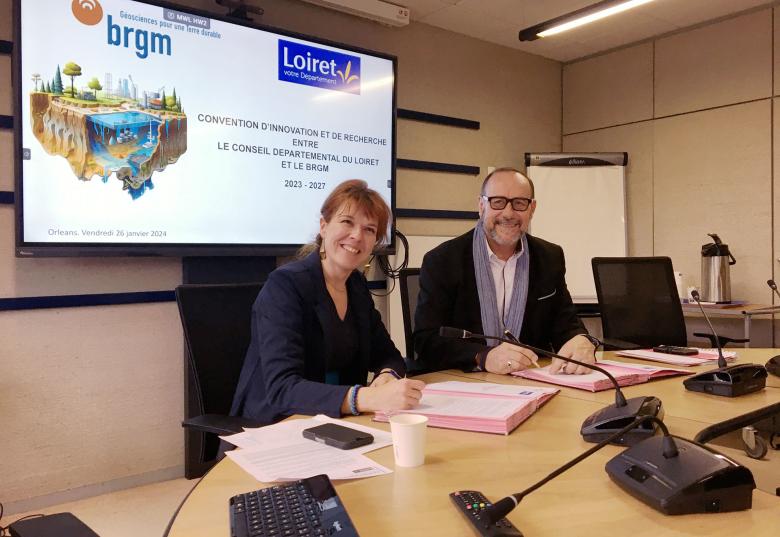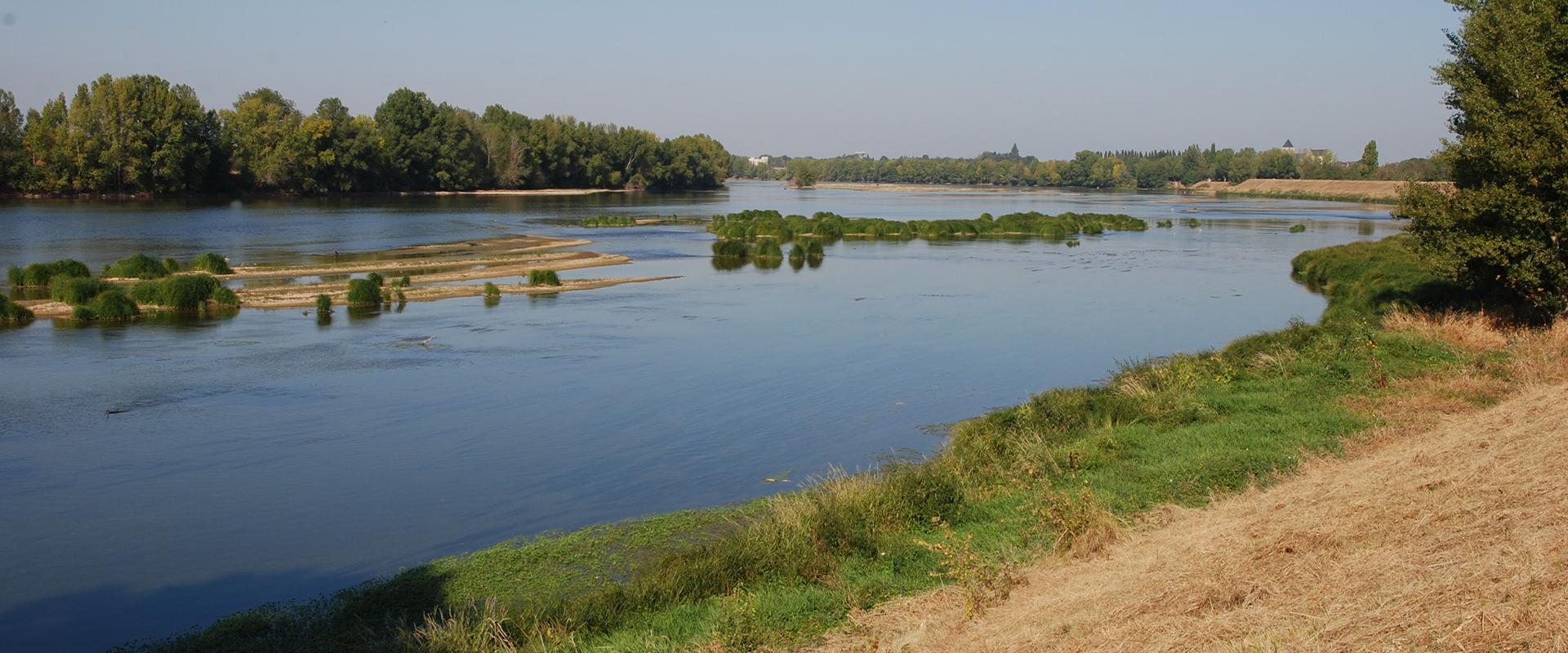
On Friday 26 January 2024, Catherine Lagneau, BRGM Chair and CEO, and Marc Gaudet, President of the Loiret Département, signed an agreement aimed at boosting scientific research for the management of Loiret's subsurface and its natural resources.
© BRGM
On 26 January 2024, Marc Gaudet, President of the Loiret Département, Jean-Luc Riglet, Vice-President in charge of the Environment and Transition, and Catherine Lagneau, BRGM Chair and CEO, signed a framework agreement binding the two organisations until 2027. This agreement aims to boost research for the management of Loiret's subsurface and its natural resources.
The Loiret is the first département in the Centre-Val de Loire region to sign a scientific research agreement with BRGM, and in 2024 it will be allocating a budget of €30,000 to these research and innovation projects. Both parties have undertaken to share the resulting knowledge with the public.
The challenge of groundwater resources
This new partnership focuses on specific projects such as controlled recharging of aquifers. This innovative technique can be used to secure the water supply by facilitating the infiltration of water from elsewhere into the aquifers, while respecting environmental criteria (surface water, run-off, treated waste water).
Hydrogeological studies must be carried out, aquifers modelled and the most suitable areas identified in order to assess the feasibility and potential of the technique. This comprehensive, integrated approach aims to strike a balance between preserving ecosystems, meeting water needs and ensuring resilience in the face of climate change.
Geothermal energy, a key area for collaboration
The cooperation will focus on the development of geothermal energy in the Loiret region (near-surface and deep geothermal energy). Near-surface geothermal energy (<200 m) provides low-carbon heating and/or cooling by means of heat pumps. Deep geothermal energy enables heat to be recovered directly from deeper, and therefore hotter, aquifers. The Loiret Département has significant geothermal potential, which is why it has been selected as a pilot département for a national deep geothermal inventory, paving the way for exploration of this resource for clean, renewable energy production.
Other areas covered by the agreement
- Help with crisis management: the Département can call on BRGM to deal with untoward events (land collapse, subsidence, etc.) or suspected imminent danger. BRGM has undertaken to carry out an on-site assessment to identify the risks and make recommendations to ensure the safety of people and property.
- Study of pollutants in the soil: to prevent health and environmental risks, particularly for staff from the archaeology department.
An agreement subsequent to previous collaboration
In carrying out its missions, the Loiret Département regularly relies on BRGM's technical and scientific expertise:
- 2016 to 2022: in 2016, the Département subsidised the MIMAROC platform to the tune of €500,000, designed to support the development of subsurface technologies, with a focus on geothermal energy and CO2 storage. It was inaugurated in 2023.
- Since 2017: as part of preliminary work for the RD 921 bypass between Jargeau and Saint-Denis-de-l'Hôtel, BRGM and the Département have defined their respective commitments for the purpose of summarising the geological and geotechnical reconnaissance data acquired on the project to enable the bypass to cross the Loire river.
- Following the floods in 2016, the Département contributed €34,000 to the funding of studies, carried out by BRGM and CEREMA, into the functioning of the Retrève basin.





